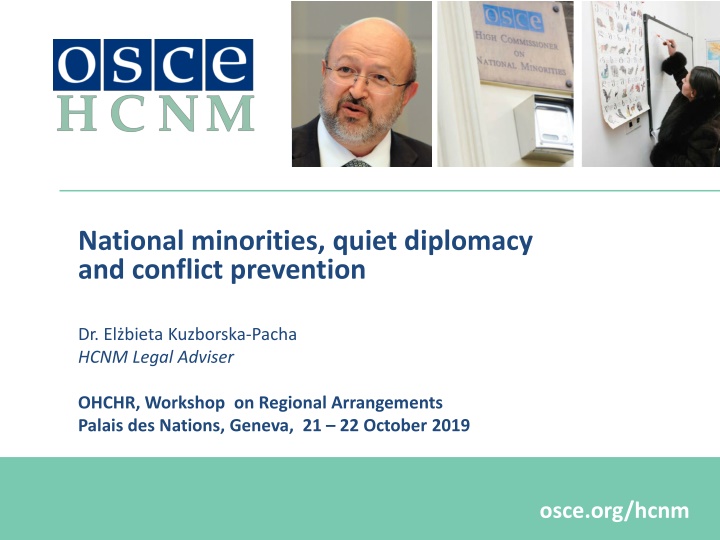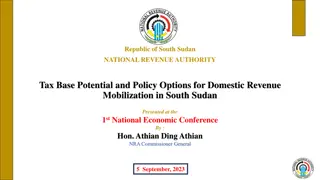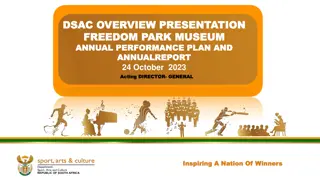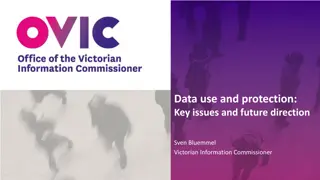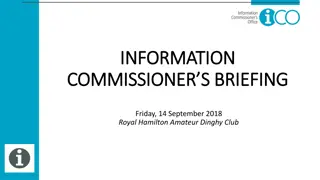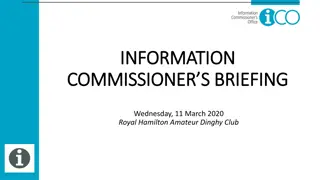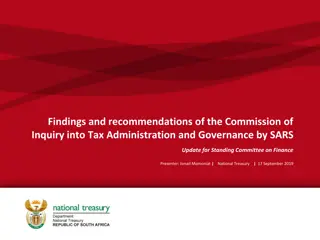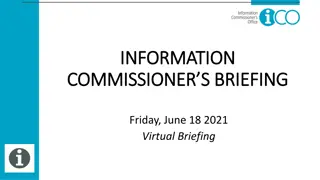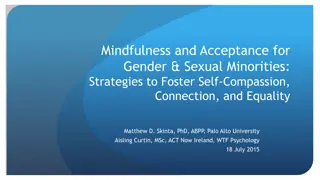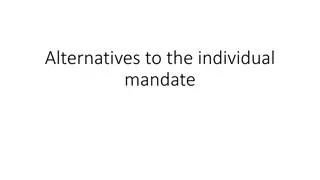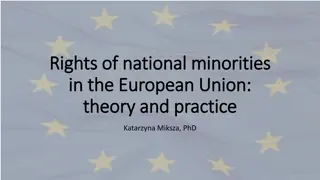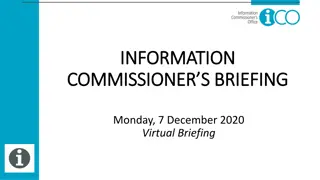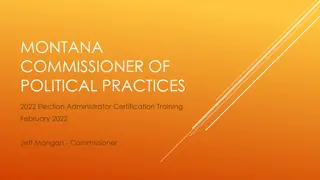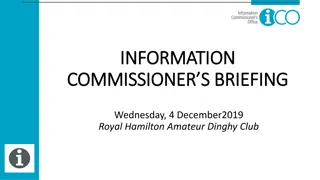High Commissioner on National Minorities (HCNM) Mandate and Activities
The High Commissioner on National Minorities (HCNM) was established in 1992 by the OSCE to prevent conflicts related to national minority issues. Through quiet diplomacy and early warning mechanisms, the HCNM works to identify and address ethnic tensions that could threaten peace and stability among OSCE participating States. The HCNM's mandate includes providing early action when necessary and offering recommendations to promote the rights of national minorities. The High Commissioners have played a crucial role in facilitating dialogue, making country visits, and producing recommendations on various minority rights topics. Additionally, the HCNM has published several key documents outlining recommendations on education, linguistic rights, minority language use in media, and policing in multi-ethnic societies.
Download Presentation

Please find below an Image/Link to download the presentation.
The content on the website is provided AS IS for your information and personal use only. It may not be sold, licensed, or shared on other websites without obtaining consent from the author.If you encounter any issues during the download, it is possible that the publisher has removed the file from their server.
You are allowed to download the files provided on this website for personal or commercial use, subject to the condition that they are used lawfully. All files are the property of their respective owners.
The content on the website is provided AS IS for your information and personal use only. It may not be sold, licensed, or shared on other websites without obtaining consent from the author.
E N D
Presentation Transcript
National minorities, quiet diplomacy and conflict prevention Dr. El bieta Kuzborska-Pacha HCNM Legal Adviser OHCHR, Workshop on Regional Arrangements Palais des Nations, Geneva, 21 22 October 2019 osce.org/hcnm
OSCE HCNMs mandate HCNM established in 1992 as an instrument of conflict-prevention by providing early warning. Within the politico-military dimension of the OSCE (NOT the human rights dimension). To identify and seek early resolution of ethnic tensions that might endanger peace, stability or friendly relations, between OSCE participating States. Independence and confidentiality Quiet Diplomacy
Mandate of the High Commissioner The High Commissioner will provide early warning and, as appropriate, early action , at the earliest possible stage in regard to tensions involving national minority issues which have not yet developed beyond an early warning stage, but in the judgment of the High Commissioner, have the potential to develop into a conflict within the CSCE area, affecting peace, stability or relations between participating States, requiring the attention of and action by the Council or the CSO [Committee of Senior Officials] No consideration of national minority issues in situations involving acts of terrorism/armed violence; No individual cases. [Source: HCNM Mandate, Section II, para.3, 1993] 3
High Commissioners Max van der Stoel Netherlands (1992-2000) Astrid Thors Finland (2013-2016) Rolf Ek us Sweden (2000-2007) Lamberto Zannier Italy (2017-) Knut Volleb k Norway (2007-2013) 4
HCNM tool box Country visits/ Shuttle diplomacy / facilitating dialogue Country recommendations Twice per year report to the Permanent Council Statements and speeches Projects Thematic recommendations Co-operation with 3rd States, parties & IOs: e.g. UN, CoE, EU 5
HCNM publications (1) The Hague Recommendations Regarding the Education Rights of National Minorities (October 1996) The Oslo Recommendations Regarding the Linguistic Rights of National Minorities (February 1998) The Lund Recommendations on the Effective Participation of National Minorities in Public Life (September 1999) Guidelines on the Use of Minority Languages in the Broadcast Media (October 2003) Recommendations on Policing in Multi-Ethnic Societies (February 2006) 6
HCNM publications (2) The Bolzano/Bozen Recommendations on National Minorities in Inter-State Relations (June 2008) The Ljubljana Guidelines on Integration of Diverse Societies (November 2012) The Graz Recommendations on Access to Justice and National Minorities (November 2017) The Tallinn Guidelines on National Minorities and the Media in the Digital Age (February 2019) https://www.osce.org/hcnm/410759 7
Enhancing inter-organisational cooperation Making use of the reports and expertise More systematic exchange of information Appointment of a desk-to-desk contact points Flexibility of contacts Role of the special procedures 8
